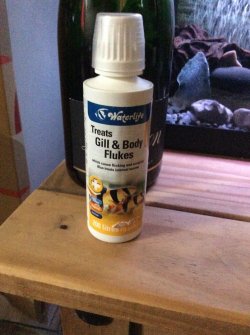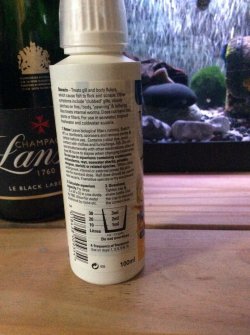fishyfun&fans
Fishaholic
I saw some white poo today from a couple of my fish so as you would I have been to get some de wormer/anti fluke meds
Much to my dismay I headed down to the Dreaded LPS again! I was met by a rather troubled looking member of staff-whom did seem keen to help though
Well I got there asked for proziquintal(can’t spell it but showed them what I meant) they couldn’t find anything with that exact chemical but they saw this and thought maybe this was a good option I’m however not so sure but needs must so I bought it
Can I have some opinions please and also some instructions on dosage?
Tank size 22”L-14”H-12.5”D
63 litres water weight or 14IMP’G 17US’G
I keep Assorted Mollies and 1 Dwarf Gourami Fancy Guppy fry and mollie fry
Much to my dismay I headed down to the Dreaded LPS again! I was met by a rather troubled looking member of staff-whom did seem keen to help though
Well I got there asked for proziquintal(can’t spell it but showed them what I meant) they couldn’t find anything with that exact chemical but they saw this and thought maybe this was a good option I’m however not so sure but needs must so I bought it
Can I have some opinions please and also some instructions on dosage?
Tank size 22”L-14”H-12.5”D
63 litres water weight or 14IMP’G 17US’G
I keep Assorted Mollies and 1 Dwarf Gourami Fancy Guppy fry and mollie fry
Attachments
Last edited:




